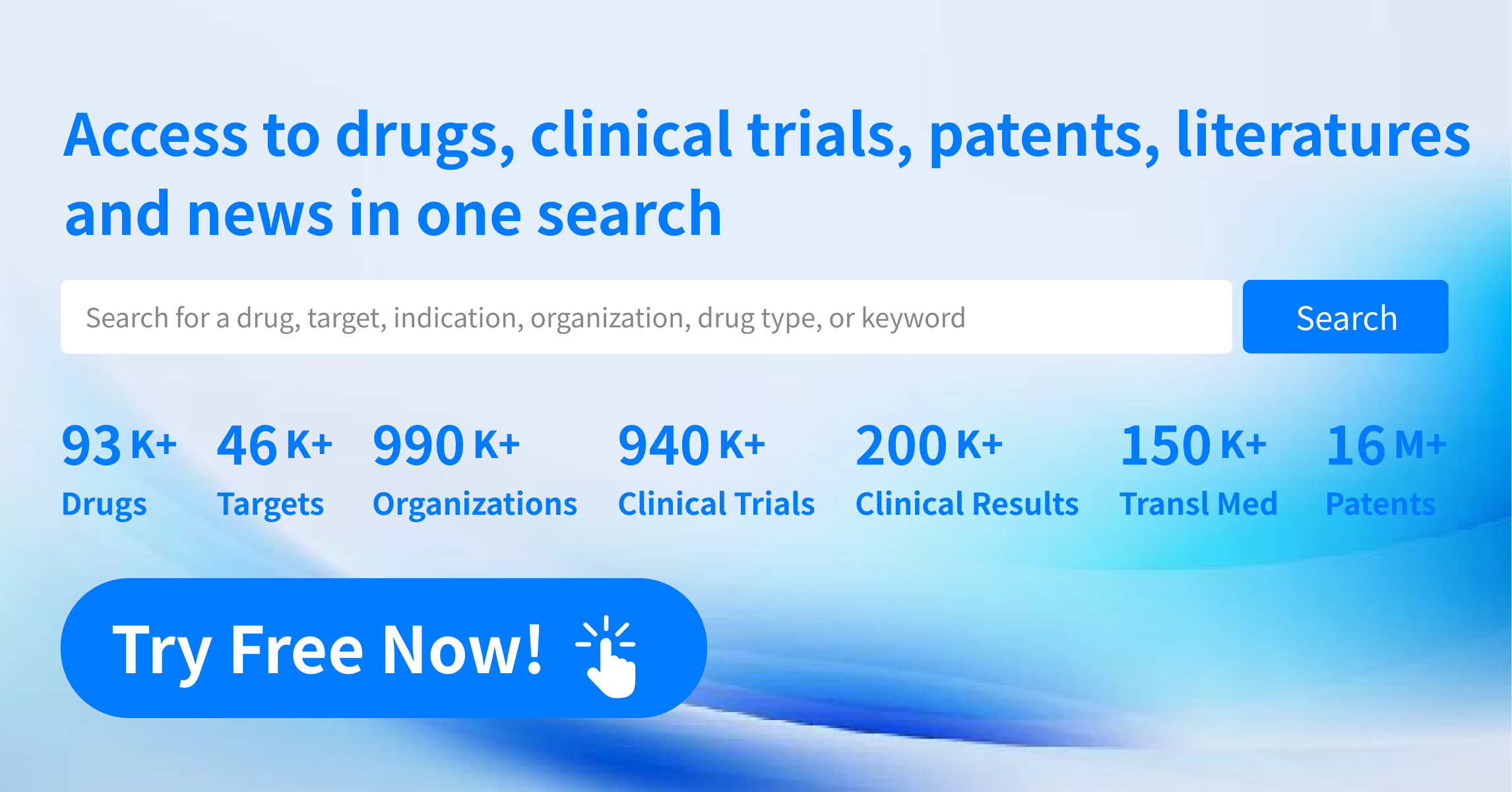Xenon Pharma Presents Phase 2 X-NOVA Trial Data on Azetukalner for Major Depression at ASCP 2024
7 June 2024
Xenon Pharmaceuticals Inc., a biopharmaceutical company focusing on neuroscience, announced compelling clinical data for azetukalner (XEN1101) at the American Society of Clinical Psychopharmacology (ASCP) 2024 Annual Meeting in Miami. Xenon's President and CEO, Ian Mortimer, highlighted the promising results from the Phase 2 X-NOVA study, which tested azetukalner in patients with major depressive disorder (MDD). The data indicated a significant reduction in depression symptoms, an early onset of action, and a favorable safety profile compared to existing antidepressants.
The company presented two key pieces of research at the ASCP event. The first was an oral presentation titled "Efficacy and Safety of Azetukalner (XEN1101), a Novel, Kv7 Potassium Channel Opener in Adults With Moderate to Severe Major Depressive Disorder: Results From the Phase 2 Proof-of-Concept X-NOVA Study," delivered by Dr. Joe McIntosh, Xenon's Senior Vice President of Clinical Development. The second was a poster presentation summarizing the same study.
The X-NOVA study involved 168 patients with moderate to severe MDD and tested two doses of azetukalner, 10 mg and 20 mg. The primary endpoint was the change in the Montgomery-Åsberg Depression Rating Scale (MADRS) at week six. Results showed a mean reduction in MADRS scores of 13.90 in the placebo group, 15.61 in the 10 mg group, and 16.94 in the 20 mg group. Although the 3.04 difference between the placebo and the 20 mg group was not statistically significant (P=0.135), it was considered clinically meaningful.
Notably, at week one, the azetukalner 20 mg group exhibited a significant reduction in MADRS scores compared to the placebo group (7.54 vs. 4.88; P=0.047), indicating an early onset of efficacy. Additionally, significant improvements were observed in the Hamilton Depression Rating Scale (HAM-D17) and the Snaith-Hamilton Pleasure Scale (SHAPS) at week six for the 20 mg group compared to the placebo group.
Regarding safety and tolerability, azetukalner was well tolerated with a low incidence of treatment-emergent adverse events (TEAEs). The most common TEAEs in the 20 mg group included dizziness (17.9%), somnolence (10.7%), headache (8.9%), and disturbance in attention (8.9%). These were compared to the placebo group, which reported dizziness (7.3%), somnolence (1.8%), headache (12.7%), and no disturbance in attention. Discontinuation rates due to TEAEs were low, with three patients in the 20 mg azetukalner group compared to two in the placebo group. Importantly, azetukalner was not associated with significant weight gain or sexual dysfunction.
The company is optimistic about the potential of azetukalner to provide a differentiated treatment for depression, citing its novel mechanism of action and promising clinical data. Xenon plans to initiate a Phase 3 MDD program in the latter half of the year, continuing their efforts to bring innovative treatments for neurological and psychiatric disorders to market.
The company presented two key pieces of research at the ASCP event. The first was an oral presentation titled "Efficacy and Safety of Azetukalner (XEN1101), a Novel, Kv7 Potassium Channel Opener in Adults With Moderate to Severe Major Depressive Disorder: Results From the Phase 2 Proof-of-Concept X-NOVA Study," delivered by Dr. Joe McIntosh, Xenon's Senior Vice President of Clinical Development. The second was a poster presentation summarizing the same study.
The X-NOVA study involved 168 patients with moderate to severe MDD and tested two doses of azetukalner, 10 mg and 20 mg. The primary endpoint was the change in the Montgomery-Åsberg Depression Rating Scale (MADRS) at week six. Results showed a mean reduction in MADRS scores of 13.90 in the placebo group, 15.61 in the 10 mg group, and 16.94 in the 20 mg group. Although the 3.04 difference between the placebo and the 20 mg group was not statistically significant (P=0.135), it was considered clinically meaningful.
Notably, at week one, the azetukalner 20 mg group exhibited a significant reduction in MADRS scores compared to the placebo group (7.54 vs. 4.88; P=0.047), indicating an early onset of efficacy. Additionally, significant improvements were observed in the Hamilton Depression Rating Scale (HAM-D17) and the Snaith-Hamilton Pleasure Scale (SHAPS) at week six for the 20 mg group compared to the placebo group.
Regarding safety and tolerability, azetukalner was well tolerated with a low incidence of treatment-emergent adverse events (TEAEs). The most common TEAEs in the 20 mg group included dizziness (17.9%), somnolence (10.7%), headache (8.9%), and disturbance in attention (8.9%). These were compared to the placebo group, which reported dizziness (7.3%), somnolence (1.8%), headache (12.7%), and no disturbance in attention. Discontinuation rates due to TEAEs were low, with three patients in the 20 mg azetukalner group compared to two in the placebo group. Importantly, azetukalner was not associated with significant weight gain or sexual dysfunction.
The company is optimistic about the potential of azetukalner to provide a differentiated treatment for depression, citing its novel mechanism of action and promising clinical data. Xenon plans to initiate a Phase 3 MDD program in the latter half of the year, continuing their efforts to bring innovative treatments for neurological and psychiatric disorders to market.
How to obtain the latest research advancements in the field of biopharmaceuticals?
In the Synapse database, you can keep abreast of the latest research and development advances in drugs, targets, indications, organizations, etc., anywhere and anytime, on a daily or weekly basis. Click on the image below to embark on a brand new journey of drug discovery!
Get started for free today!
Accelerate Strategic R&D decision making with Synapse, PatSnap’s AI-powered Connected Innovation Intelligence Platform Built for Life Sciences Professionals.
Start your data trial now!
Synapse data is also accessible to external entities via APIs or data packages. Empower better decisions with the latest in pharmaceutical intelligence.
